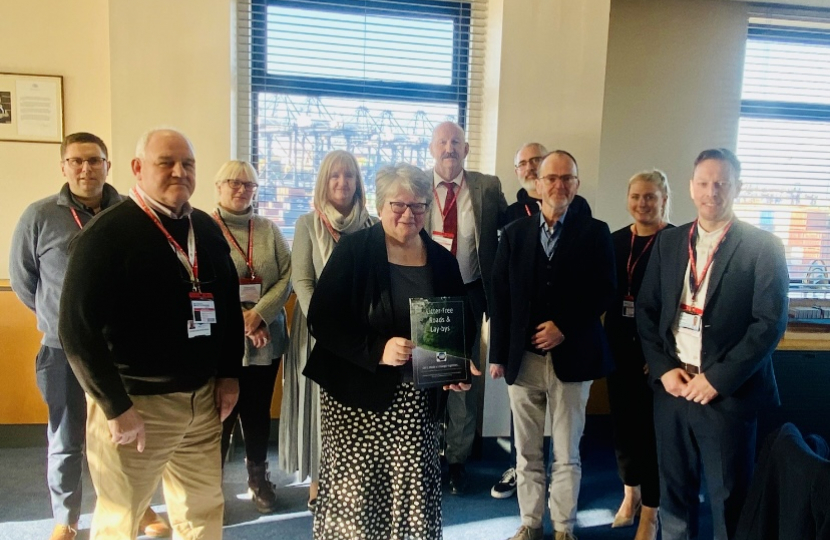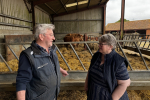
Last Friday, Therese hosted a roundtable on how to tackle roadside litter, with representatives of the Port of Felixstowe, National Highways, the haulage industry, East Suffolk Council and Litter Free Felixstowe all coming together to work on solutions to clean up the A14.
Therese said: “Littering the roadside is not acceptable, so it was good to discuss ways we can work together to tackle the issue more effectively with resolutions that include better education, corporate accountability, tougher penalties and a focus on facilities - reflecting elements of the government’s anti-litter strategy.”
Therese added: “I was pleased to hear that hauliers have already introduced anti-littering training to drivers and want to promote a litter-free lorry campaign but we need a zero-tolerance approach. To that end, I also want National Highways, the Port and haulage companies to work together to ensure stricter enforcement, including investigating ANPR cameras.”
Deborah Bartlett from Litter Free Felixstowe said: “‘Littering in the UK is a national disgrace and the amount of rubbish along our major roads requires urgent action for the sake of the wildlife and environment. No one person or group can solve the issue on their own but by working together in collaboration with national and local government we can hopefully make a real difference in changing behaviours and clearing historic litter. For too long different departments and authorities have worked in isolation - a joined-up approach is essential. I am grateful to DEFRA and the haulage industry for helping to take the lead”.
Another key element of the discussion was a commitment from East Suffolk Council to create additional capacity in its litter-picking provision with a focus on roadside litter.
Felixstowe Councillor, Steve Wiles said: “I appreciated being invited to sit down with so many focused stakeholders: a beneficial meeting called to discuss possible solutions to this important issue. The A14/A12 are both contributing factors in the ongoing success and popularity of our peninsula - a visiting card which should be respected.”
